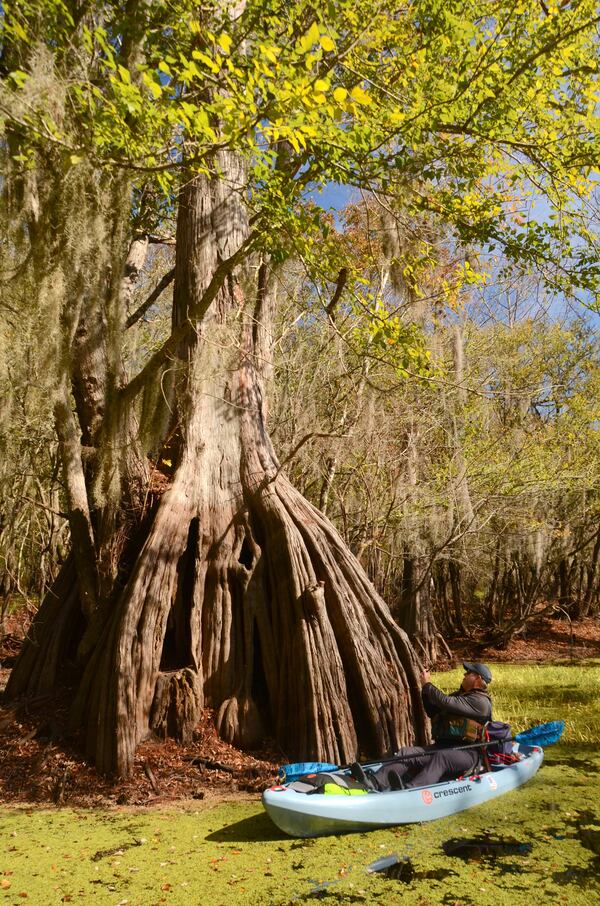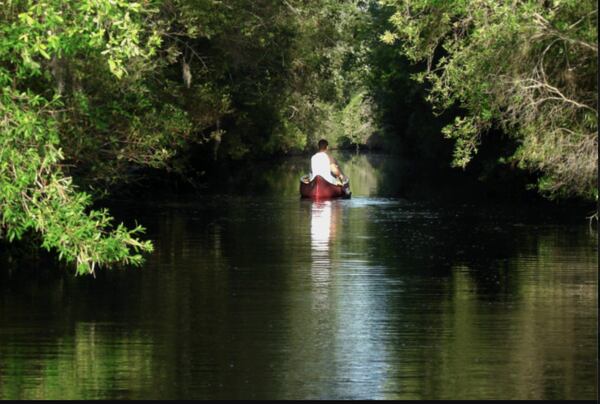On December 30, the Biden administration restored Clean Water Act protections from pre-2015 after years of rough legal waters. The new rule, recently announced by the U.S. Environmental Protection Agency and the Army Corps of Engineers, reverses a Trump-era rule that scaled back protections and excluded some critical wetlands and streams from protection.
Whether it is developers looking to construct near a river or a company looking to discharge its waste into a waterway, there are plenty of ways that local actions — like applying for a permit, in these cases — have bits of state and federal water protections baked into everyday work. In Georgia, the legal battle over wetlands protections not only impacts regular development but has centered the federal flip-flopping at the site of the controversial proposed titanium dioxide mine at the Okefenokee National Wildlife Refuge.
Winding history, full circle
Current clean water policies find their origins in WOTUS: Waters of the United States. A 2015 Obama administration rule, WOTUS defined what waters can be protected under the Clean Water Act, and the Biden administration's rule looks to set the clock back to before that 2015 decision.
The need for a change came after major upheaval in water protections during the Trump administration. In 2017, the Trump administration started unwinding Clean Water Act protections with the Navigable Waters Protection Rule, which reduced or removed protections from millions of miles of streams and wetlands. It went into effect in 2020.
But in August 2021, a federal judge in the United States District Court for Arizona struck down the rule, citing the potential for environmental harm, violations of the 1972 Clean Water Act and hundreds of projects nationwide that went ahead without environmental permitting where it previously would have been required.
"When Congress enacted the (1972) statute, it wanted to protect the aquatic ecosystem: all the streams and wetlands that are necessary to make sure that our rivers, lakes and drinking water sources are safe, and people can fish in them," said Kelly Moser, a senior attorney at the Southern Environmental Law Center (SELC), a regional nonprofit legal organization that employs lawyers, policy experts and community advocates to challenge environmental threats. She said that the rule was based on scientific evidence that waters that may not touch a river still have big environmental impacts, like wetlands that protect communities against flooding, which Trump's rule doesn't account for.
Credit: Photo courtesy of Georgia River Network
Credit: Photo courtesy of Georgia River Network
New rule is not a done deal
While the new rule will increase and re-solidify watershed protections, an upcoming U.S. Supreme Court decision could dampen, or effectively wipe out, the EPA's new rule. Sackett v. EPA is a case brought from Idaho regarding filling federally protected wetlands near a large lake and the scope of the Clean Water Act that was heard in October by the highest court in the land and will deliver a decision this year.
Some worry a conservative-leaning court will deliver a huge blow to the Clean Water Act, just after its 50th anniversary, and that the EPA's new rulemaking was futile. But Moser at the SELC said that putting the EPA rule in place now means the agencies will likely have some room to interpret the decision and the context of their rule. She said that the EPA attorneys have sent a copy of the rule to the U.S. Supreme Court to review and see how the rule is rooted in the text of the Clean Water Act.
Georgia’s clean water battleground
There’s a bit of irony that the Okefenokee — which in the language of the region’s indigenous group, the Muscogee, means “land of the trembling earth” — has its future on shaky legal ground. The changes in federal protections have overlapped directly with the proposed mining project, causing the U.S. Army Corps to deliver and take back federal protections over the summer. But the new rule change won’t stymie the contentious development.
Credit: Photo courtesy of Tommy Barton
Credit: Photo courtesy of Tommy Barton
Twin Pines Minerals LLC, the company aiming to open the mine, declined to comment for this story.
Georgia’s business contends with conservation
Not everyone is on board with the change. U.S. Rep. Buddy Carter (R), whose district covers coastal Georgia including the Okefenokee National Wildlife Refuge, voiced his opposition to the new regulation in a press release issued by the Congressional Western Caucus.
“Restoring the Obama-era WOTUS rule will restore a world of vague and disastrous regulations for Georgia’s farmers, small businesses, homeowners, local government, and families, who do not need an unelected bureaucrat to tell them how to use the Peach State’s natural resources,” Carter said. “Under President Trump, there were clear and certain guidelines, ones that should transcend political party and remain law.”
Rena Ann Peck, director of the Georgia River Network, an organization that advocates for recreation and connection for Georgia's rivers, said that clean waters and Georgia's economy aren't at odds. She said that federal laws lay out the minimum, but Georgia can provide stable, predictable standards businesses can rely on that are stronger than federal law and protective of the state's natural resources.
"Triggering that (environmental) permitting process helps community-based conservation and rural economic development around our water trails because it makes the state, the developer and the community examine what's best for that site," Peck said. It brings together the community so projects don't just belong to developers, but to the community as well.
This article originally appeared on Savannah Morning News: Restored Clean Water protections come to Georgia, but may not change Okefenokee mine
MEET OUR PARTNER
Today’s story comes from our partner, Savannah Morning News. Savannah Morning News provides daily news coverage on Coastal Georgia. Visit them at savannahnow.com or on Twitter @SavannahNow.
If you have any feedback or questions about our partnerships, you can contact Senior Manager of Partnerships Nicole Williams via email at nicole.williams@ajc.com.



